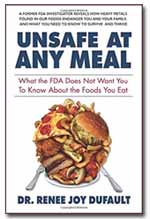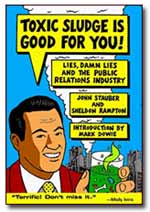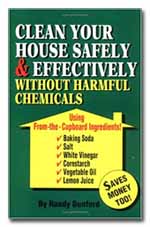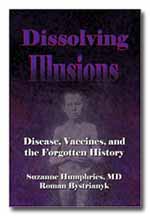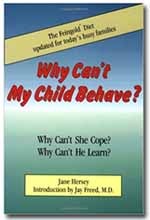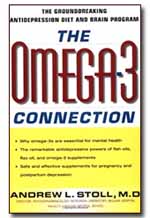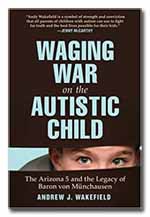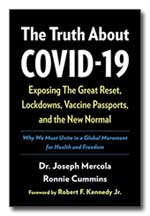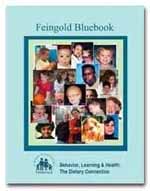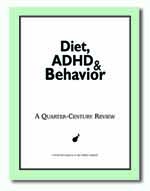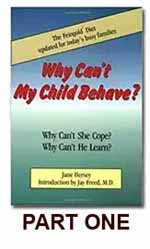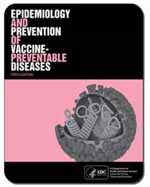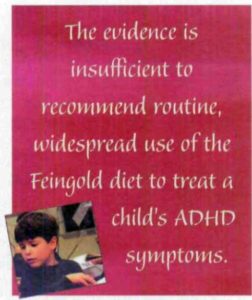 Braganza, Galvez, Ozuah. Contemporary Pediatrics. 23(5): 47-49.
Braganza, Galvez, Ozuah. Contemporary Pediatrics. 23(5): 47-49.
This paper’s stated purpose was to advise doctors on how to respond to parents asking about diet therapy for ADHD – in particular, the Feingold diet. To support their opinion, Braganza et al cite (and misquote) one study and one review more than 20 years old.
NOTE: This appears to be really bad science, causing one to wonder if it might possibly have been written in service of Big Pharma or the food additive industry interests.
- The authors cite the Weiss (1980) study, claiming it “demonstrated no change in behavior when a child was on the Feingold diet.”
NOTE: This was a study on 22 children who were not ADHD. 100% of them (by definition) had already benefited from the diet, and Weiss wanted to see if they would react to a small dye challenge. Two of them (10%) did.
- Citing the review by Wender (1986), the authors write that only 1% of children “exhibited a consistent improvement of symptoms while on the diet.”
NOTE: Wender reviewed a series of small studies of children who had already improved on the diet and she claimed only about 1% of them had reacted to a small dye challenge “in the expected direction.” Her wording was exceedingly unclear, however, and Braganza apparently misunderstood. This is a case of confusing reaction to challenge with response to diet.
- Braganza et al also claim that Dr. Feingold had banned aspartame, a “salicylate-containing compound.”
NOTE: (1) Aspartame is not a salicylate. And (2) Dr. Feingold did not ban it, anyway, since it was not introduced into the US market until 1981, the year before his death. The Feingold Association does ban it today because of its reported effects on members and relevant research, but it contains no “salicylate” component. I have no idea where they got that idea.
Not in MedLine || Full Text


